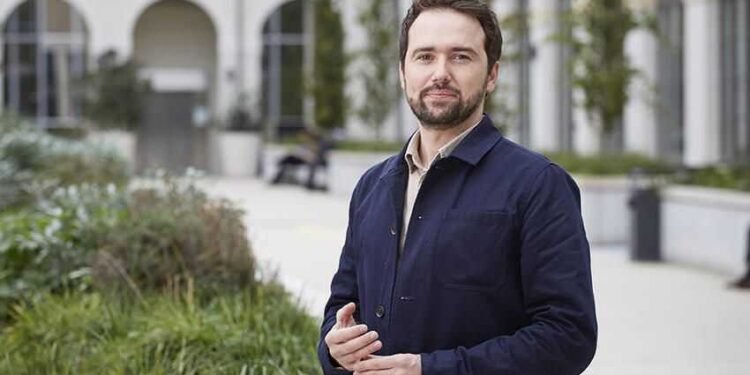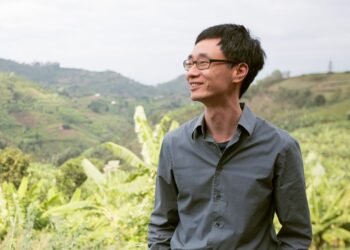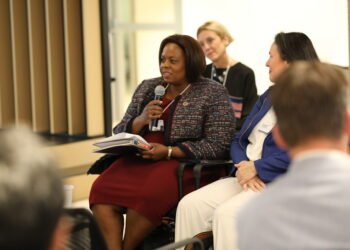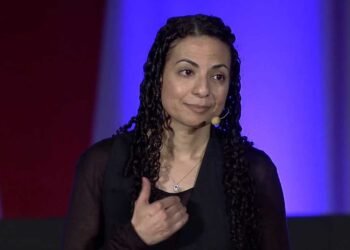What if everything you thought about global wealth distribution was wrong? The numbers might surprise you more than you expect.
Lucas Chancel stands at the forefront of economic inequality research. As a tenured Associate Professor of Economics at Sciences Po, his work delves deep into global disparities.
He co-directs the World Inequality Lab at the Paris School of Economics. His focus combines economic inequality with ecological transitions.
This interdisciplinary approach provides unique insights into modern economic challenges. His reports influence global discussions on fairness and sustainability.
Key Takeaways
- Lucas Chancel is a leading expert in economic inequality research
- He holds positions at Sciences Po and the World Inequality Lab
- His work examines global wealth distribution patterns
- Research includes ecological transition economics
- He co-directs a prestigious Paris-based research institution
- His reports contribute significantly to inequality understanding
- Combines economic and environmental perspectives uniquely
Professional Profile and Academic Appointments
The making of an inequality expert requires crossing traditional disciplinary boundaries in education. This scholar’s academic journey showcases this interdisciplinary approach perfectly.
His educational foundation began with social sciences at Sciences Po and Pierre et Marie Curie University. He earned a Bachelor degree in Physics and Earth Sciences, showing early scientific interests.
The academic path continued with graduate studies at prestigious institutions. He obtained an M.Sc. in Economics and Public Policy from Ecole Polytechnique, ENSAE, and Sciences Po.
An additional M.Sc. in engineering specialized in renewable energy came from Imperial College London. This unique combination of economics and engineering shaped his research perspective.
His doctoral studies culminated in 2018 at the School for Advanced Studies in the Social Sciences. He earned his PhD in economics from Paris Sciences Lettres University.
The dissertation focused on global income and pollution inequality under Thomas Piketty’s supervision. This work established his research direction combining economic and environmental issues.
Professional development began in 2011 at the Institute for Sustainable Development and International Relations. Teaching responsibilities started around the same time at Sciences Po.
International recognition came through visiting appointments at top institutions. He served as Visiting Associate Professor at Harvard Kennedy School.
A Visiting Senior Fellow position followed at London School of Economics. These appointments expanded his global academic network and influence.
His teaching includes a Master-level course on global inequality and sustainability. This reflects his academic specialization in public economics and climate change research.
Current institutional affiliations center around the Paris School of Economics. His work at the World Inequality Lab continues to address pressing economic challenges.
The progression through various research institutions shows dedicated career development. Each position built upon previous experiences in meaningful ways.
This academic journey demonstrates how multidisciplinary training creates unique expertise. The combination of physics, economics, and engineering informs innovative research approaches.
Seminal Publications and Global Reports
Academic research reaches its fullest impact when translated into influential publications. This scholar’s body of work includes critically acclaimed books and groundbreaking reports.
Unsustainable Inequalities: Social Justice and the Environment stands as a landmark publication. The Harvard University Press book earned recognition from Financial Times and Nature as among the best books of its year.
Another significant contribution arrives in 2025 with Energy and inequality: A political history. This forthcoming work continues the exploration of energy distribution patterns across societies.
The 2023 Climate Inequality Report represents collaborative excellence in research. Co-authored with colleagues at the World Inequality Lab, it provides comprehensive climate disparity analysis.
Prestigious journals have published numerous research articles advancing inequality understanding. Nature Communications and Nature Climate Change feature recent studies on carbon perception and wealth distribution.
Indian economic research forms another important publication category. Working papers and articles analyze wealth distribution and tax justice in India’s evolving economy.
Collaboration with Thomas Piketty yielded significant contributions to inequality literature. Their joint work expands understanding of global wealth concentration patterns.
The World Inequality Report 2018 reached international audiences through translation into dozens of languages. This widespread dissemination amplified its impact on global economic discussions.
Research methodology combines rigorous data analysis with innovative measurement approaches. These techniques provide fresh perspectives on persistent economic challenges.
Contemporary economic and environmental debates consistently reference these publications. They offer evidence-based insights into interconnected social and ecological systems.
International media coverage has brought these findings to broader public awareness. The research continues to influence policy discussions worldwide.
Pioneering Research on Inequality and Sustainability
Groundbreaking work connects economic disparities with environmental challenges. This research reveals how wealth distribution impacts carbon footprints globally.
Studies show the richest groups emit vastly more than poorer populations. These findings challenge traditional climate change discussions.
Carbon and Energy Inequality
Research measures emission disparities across different wealth groups. A 2025 study in Climatic Change introduces innovative carbon accounting methods.
This work tracks emissions from capital ownership and investments. It shows how wealthy individuals contribute disproportionately to pollution.
Energy consumption patterns reveal stark economic divides. The research demonstrates how access to resources varies by income level.
Wealth Distribution and Taxation
Tax justice proposals offer solutions to economic imbalances. A 2023 Nature Climate Change article explores wealth taxation potential.
This approach addresses climate inequality through progressive policies. It suggests taxing the richest to fund environmental solutions.
Indian economic research provides concrete case studies. These examine wealth redistribution mechanisms in developing economies.
Climate Change and Global Wealth
Climate impacts affect wealth distribution patterns worldwide. Research connects environmental damage with economic consequences.
The Paris Climate Conference saw advocacy for carbon emission taxes. This global approach targets the largest polluters directly.
Coordination of major reports expanded this research’s reach. The World Inequality Report 2018 presented comprehensive data analysis.
This work bridges sustainability with economic justice concerns effectively. It offers practical policy recommendations for fairer systems.
Conclusion
Economic inequality research finds its most powerful voice through interdisciplinary approaches. Lucas Chancel’s work at the World Inequality Lab demonstrates this perfectly.
His research reaches beyond academic circles into policy and public discourse. Major publications like Science and Nature regularly feature his findings.
The impact extends to climate policy through IPCC reports and European advocacy. His arguments for debt mutualization during crises show practical policy applications.
Collaborations with artists bring cultural dimensions to inequality discussions. This broad engagement makes economics accessible to wider audiences.
This economist’s comprehensive approach continues shaping global conversations about fairness and sustainability. Future work will likely influence both economic and environmental policy worldwide.
FAQ
What is Lucas Chancel best known for?
Lucas Chancel is best known for his research on economic inequality and sustainability. He co-directs the World Inequality Lab at the Paris School of Economics and is a lead author of the World Inequality Report.
What is the World Inequality Lab?
The World Inequality Lab is a research center focused on the study of global inequality dynamics. Based at the Paris School of Economics, it produces the World Inequality Report and the World Inequality Database.
What are some of Lucas Chancel’s key publications?
Key publications include the World Inequality Report, which he co-authors, and his book Unsustainable Inequalities. His work often examines the links between social justice and environmental issues.
How does Lucas Chancel’s work address climate change?
His research explores how carbon emissions and the impacts of climate change are unevenly distributed across income groups. He advocates for fair policies that address both economic and ecological crises.
What is carbon inequality?
Carbon inequality refers to the disproportionate carbon emissions between the wealthy and the poor. Lucas Chancel’s research shows that the top earners are responsible for a much larger share of global emissions.
How does taxation relate to Lucas Chancel’s research?
He studies how tax systems can reduce wealth distribution gaps and fund social and environmental programs. His work supports progressive taxation as a tool for equity and sustainability.





